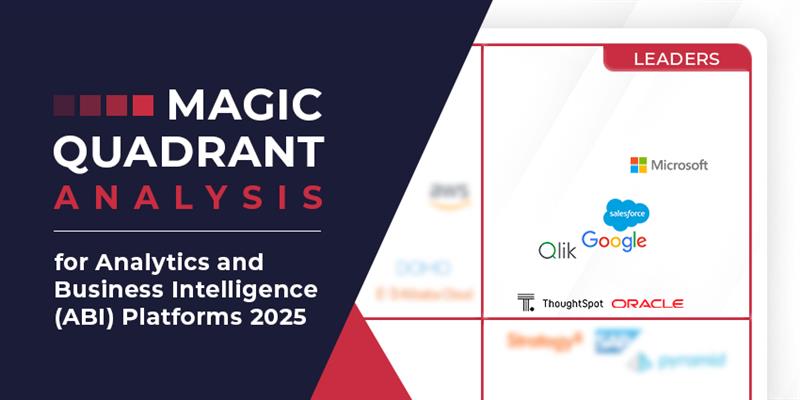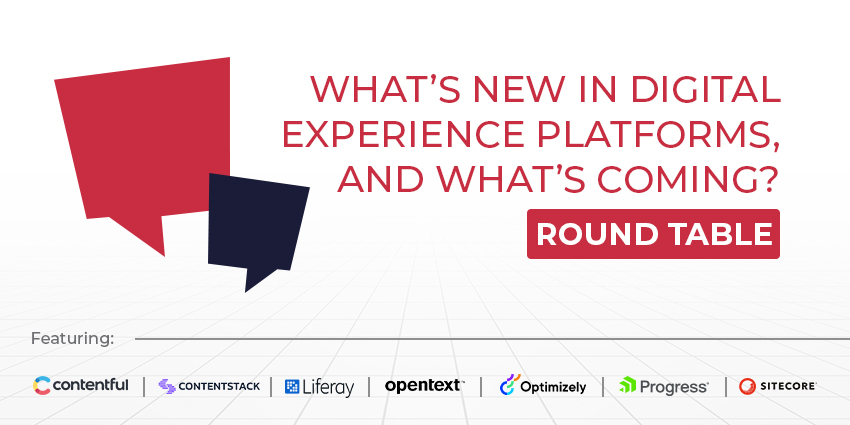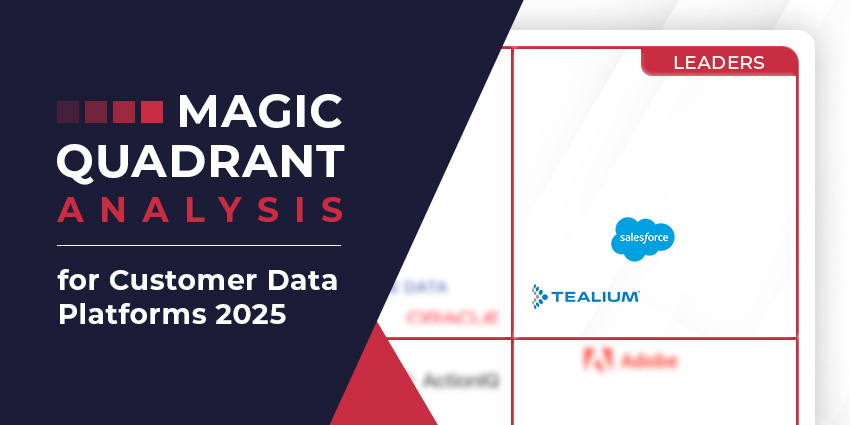In a recent article, we talked about the widening gap in Europe in customer experience maturity. In this piece, we thought it would be helpful to decode the strategies that CX leaders use to break away from the pack.
Our focus in this article is on how leveraging real-time customer data can provide insights on identity, interactions, behaviour and attitudes that can help you identify and predict CX issues and opportunities.
Why now, and why in real-time?
Brands have unprecedented access to customer data and digital footprints. In our always-on world, customers expect businesses to do something with this knowledge that’s in their interests.
They know what their data is worth. And they want something tailored, meaningful and relevant in return for sharing it. This is the value exchange that underpins informal ‘data contracts’.
Customer fatigue
Customers are also growing tired of surveys. Think about the number of surveys you’re asked to complete each week. As a leader, you may diligently complete all of them. However, you are also aware that the information you provide has its limitations – it’s reactive and high-level, with minimal real-time application.
Customers and leaders are sick and tired of surveys.
Fortunately, there are a few organisations that stand out in their utilisation of this information and in incorporating customer feedback into their products and services. Data latency in any form can pose a risk to your business, but it can also be a tremendous advantage.
The companies setting the standards on analytics are listening, hearing and reacting in real-time. They gain immediate insights into customer preferences, behaviour, and purchasing patterns to enhance their experience.
CX pioneers boost their capabilities by investing in customer data platforms (CDPs) to give them a unified, 360-degree view of customers – across devices, channels, locations, cultures and time.
Agile, cross-functional teams – marketing, sales, customer services and contact centres, operations, product teams, tech and PR – have access to instant, actionable insights. They are driven by rapid data-oriented factual decision-making.
Leaders go beyond meeting the functional and emotional needs that are the hallmarks of a good experience. Insights from real-time data enable them to offer a unique, personalised experience: tailored messages, offers, recommendations, and interactions – in the moment and at scale.
This is the hallmark of a great customer experience. This level of personalisation increases customer satisfaction, loyalty and advocacy – resulting in sustained growth.
Real-time data analytics and CDP adoption are gaining traction in Europe and across the globe
IT leaders last year told IDC that investing in technology to achieve real-time decision-making was a top priority. This year is no different.
Start where you are. You’re already collecting masses of data to give you actionable real-time insights. You probably already have a 190-degree view of your customers.
If you’re thinking about how a CDP solution could help you work towards a unified, 360-degree view to give stakeholders across your organisation insights at the moment, read on.
Later on, we highlight some aspects to think about when doing your research, and four examples of the types of solutions on the market. First, let’s explore some of the ways real-time data can transform your CX.
Personalisation at scale
Businesses are improving their data analytics capabilities. But, by their own admission, many still have work to do to add personalised value at scale – both in the moment and over the course of a customer’s life. This is at odds with customer expectations.
As we mentioned earlier, customers know the value of their data. They want to be seen as individuals. They want companies to demonstrate that they know them and understand their individual detailed preferences.
Customers know the value of their data; they want to be seen as individuals; they want companies to demonstrate that they know them.
AI, automation and machine learning mean solutions are available to meet these expectations – at scale. It’ll be worth it. According to McKinsey, organisations that leverage real-time data to personalise customer interactions can improve revenue and retention by 10 to 30%. Marketing becomes 10-20% more efficient and costs are reduced.
Minimise scattering loss through personalised real-time offerings
Scatter loss keeps marketers awake at night. Minimising the number of contacts that aren’t in a target group and not interested in your products and services is another top priority.
Personalised real-time offerings significantly reduce wastage. Scatter loss is a major drag on the effectiveness of your campaigns and communications, and ROI can be diminished.
Improve the omnichannel experience
Real-time data enables businesses to provide a seamless omnichannel experience for customers. By collecting and analysing data from various touchpoints, such as website visits, mobile app usage, social media interactions, and customer service interactions, companies can ensure consistent and personalised experiences across channels.
Leverage predictive modelling
Leveraging predictive models helps you anticipate customer behaviours and preferences. By analysing real-time data, organisations can identify buying patterns, predict churn, and optimise their marketing strategies.
Predictive analytics also means preempting and predicting issues or upsell and cross-sell opportunities. The more complete the customer view – the more accurate the predictions (more on this in a moment).
Serve and react in the moment with a CX mindset
By capturing real-time data, you can proactively and promptly, identify and resolve customer issues. If there’s one thing that makes customers frustrated it’s having to repeat their information every time they speak with a customer service representative on the same channel.
Quickly identify upsell and cross-sell opportunities
Set real-time triggers to engage customers at the right moment. A customer buying car insurance might also be interested in personalised products offered by partners. If a car breaks down, real-time assistance is imperative to customer perceptions of your brand as I mentioned in previous articles.
McKinsey found that by deploying product recommendations and triggered communications within singular channels, personalisation leaders reported a 10 to 30% increase in marketing-spend efficiency. Leaders also take this one step further by doing this in real-time.
Be more human and inject empathy into interactions
If questions and queries are answered and resolved in the moment – by a person, chatbot or via online chat – this frees up capacity for your customer service representatives to do the heavy lifting on more complex interactions.
It also provides the human touch and empathetic support that customers seek, regardless of the sector or company. As Dr. Natalie Petouhoff and Tony Bates state in their great book, “Empathy in Action”, empathy applies anywhere.
Take the pulse of customer sentiment
What are your customers experiencing right now? Real-time intelligence helps you prevent issues from escalating, and identifies opportunities to engage.
Manage stock inventory availability in real-time
Nobody wants to order or source an item and then find out it’s out of stock. Especially if they’ve made a trip to collect it. The real-time inventory gives supply chains and vendors up-to-the-minute visibility on stock levels.
These are just some of the use cases. Stakeholders in your business will need to be clear about how your use case delivers quick value to keep momentum. Do you have the right data to get the right insights? If you need a CDP solution, what else do you need to think about?
Choosing the right data solution
If you’re thinking about investing in a customer data platform, here are a few tips and options to help you find the right solution.
There’s a big caveat here. Technology in itself doesn’t make the difference. Successful implementation requires a change management strategy, cross-functional buy-in, agile thinking and, sometimes, agile methodologies and transparency on what can be achieved to deliver better outcomes.
Having said that, what do you need to think about?
When selecting an enterprise solution think about scalability, data security, integration capabilities and analytics features. Choose a solution that can handle large volumes of real-time data and scale with your business growth.
Ensure that the solution integrates seamlessly with your existing technology stack, including CRM, marketing automation, and data analytics tools. Data security and compliance should be prioritised to protect sensitive customer information.
When selecting an enterprise solution think about scalability, data security, integration capabilities and analytics features.
Look for solutions that offer robust analytics capabilities, including real-time reporting, predictive analytics, and customer segmentation, to enable actionable insights for decision-making and personalisation. Evaluate the credibility and reputation of the solution provider, considering industry recognition and customer reviews.
Four companies delivering real-time data solutions
Salesforce – Salesforce offers a comprehensive customer relationship management platform that incorporates real-time data to enhance customer experience. Salesforce Customer 360 provides a single, shared view of customer data across multiple channels. This enables businesses to deliver personalised interactions at scale.
Adobe – Adobe’s Experience Platform also provides real-time data capabilities to scale personalisation. It unifies data from across the organisation. Companies can assemble actionable real-time profiles using Adobe Real-Time CDP. It also offers real-time journey analytics and journey optimisation.
SAS – SAS Customer Intelligence 360 offers adaptive planning, journey activation and a real-time decision engine to create personalised, moments-based CX at scale. SAS Real-Time Decision Manager enables you to drive real-time interactions, automate decisions and find better ways to leverage customer interactions. SAS also offers a predictive analytics solution.
Oracle – Oracle offers a comprehensive suite of customer experience solutions that leverage real-time data. A single, dynamic view of each account delivers intelligence in real time. Its Cloud CX Platform enables businesses to connect customer behaviour, transactions, and demographics across touchpoints to also deliver seamless, scalable personalised experiences.
There are many other technology suppliers available today; we have only mentioned a few of them.
To sum up
Leveraging real-time customer data offers many advantages, including enhanced customer experiences through improved personalisation and comprehensive customer understanding. It’s what your customers expect in return for sharing their data.
Agile companies that prioritise real-time data analytics and personalised experiences outperform their competitors in terms of customer satisfaction, adoption, loyalty, customer loyalty and revenue growth.
When researching a data solution, think about scalability, data security, integration capabilities and analytics features. And remember, a customer data platform can boost your capabilities and transform your CX significantly. But, technology on its own does not make the difference.
You’ll probably need to create a change management plan and transform your culture or adapt, as the centre of your business should be your employees and customers without a doubt.
Think with agility, ensure cross-functional adoption and be transparent to unlock the value of real-time data.
This piece was adapted from an article that was originally published on eglobalis.







